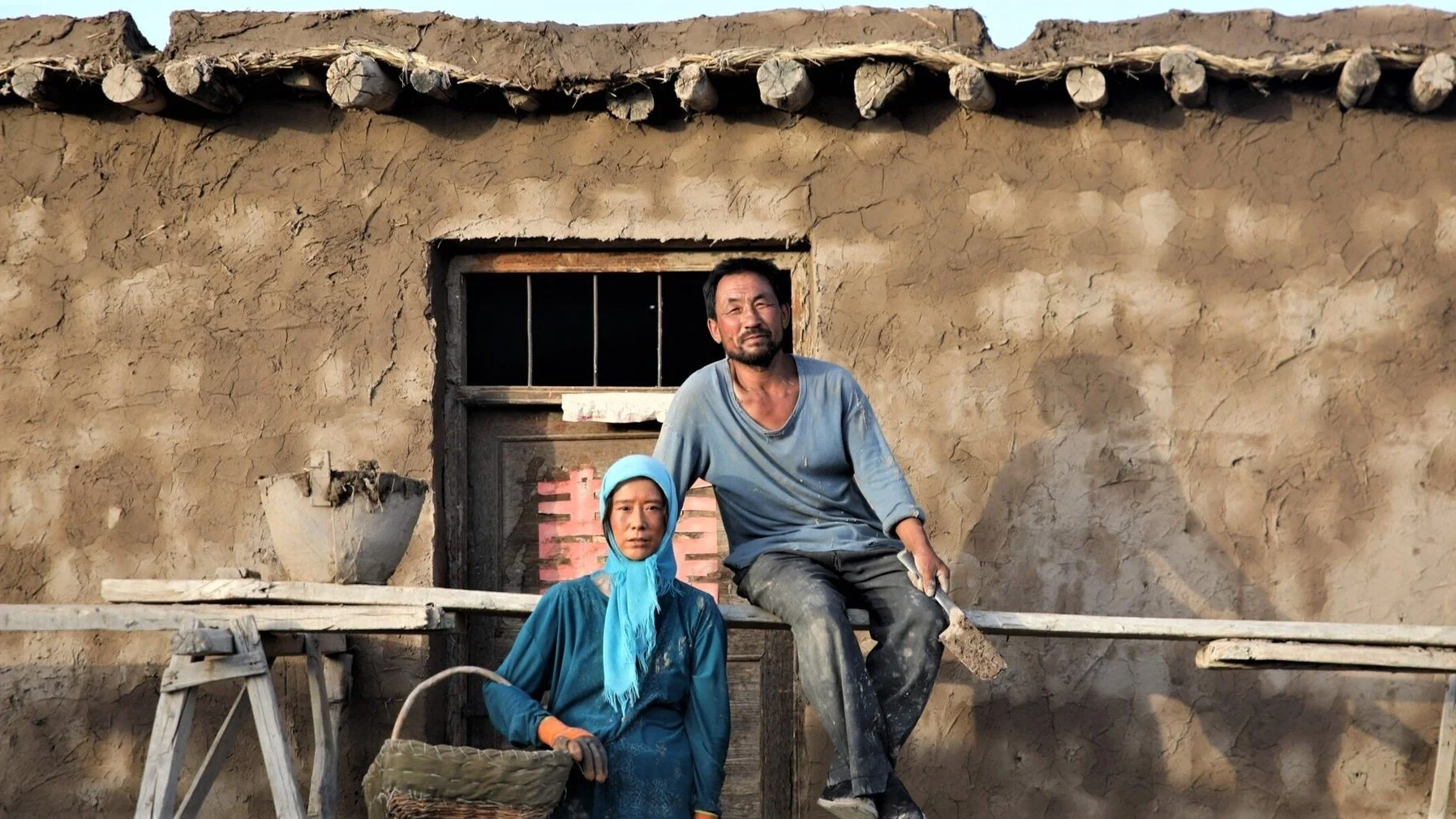Return to Dust
China surprises us with a deeply humane drama about an arranged marriage that comes close to being a masterpiece.
This remarkable film from China recalls a past age of filmmaking, the age of the humanitarian cinema of Satyajit Ray, Yasujirō Ozu and Ermanno Olmi. Indeed, the latter’s classic film of 1978 The Tree of Wooden Clogs is strongly evoked when watching Li Ruijun’s Return to Dust. Unlike Olmi’s award winner, this is not a period piece and it does not last for three hours although its running length is 133 minutes. Nevertheless, its quiet, unhurried portrayal of the lives of poor people in a rural setting, their struggle to survive on a daily basis being more of the essence than any plot as such, marks out this new work as one very much akin to what Olmi achieved.
The slow pacing of Return to Dust may be challenging for many present-day filmgoers, but this is a superbly realised film. It feels wholly authentic as it studies the lives of a couple of nobodies who marry not for love but because their respective families think it would be a good idea. The man, Ma Youtie (Wu Renlin), is the fourth brother in a family whose elders are more ambitious and are settled whereas Youtie is in his own way content with a farming life and, being illiterate, lacks any other ambitions. If he hardly seems an inspiring match, the woman, Cao Guiying (Hai Qing) is even less of a proposition since she is unable to have children and has the grave disadvantage of suffering from a stomach condition that makes her incontinent. Both Youtie and Guiying accept their marriage as the best thing that they can hope for but initially Youtie’s life as a wife is in many ways like that of a servant.
Return to Dust is set in a village in northern China’s Gaotai province and this location allows for splendid photography by Wang Weihua, the beauty of which does nothing to soften the harshness of the way of life portrayed. Although additional family members appear together with others in this village community, the film is very much centred on the couple themselves thus leaving the other figures on the sidelines without that ever feeling like a drawback. Scenes of working the land through the seasons are central here and the soundtrack, utilising both the sounds of nature and an admirably discreet music score, add to the atmosphere. In keeping with the film’s approach, both Wu and Hai give performances that, avoiding any sense of acting, create a couple who seem totally real.
While there is no attempt to build an elaborate plot around this couple, the story incorporates two developments that carry the film forward. One which can be seen as social comment is concerned with the pressures on Ma Youtie that stem from both the village committee and family members being keen to take advantage of the government policy to pay for empty houses that can then be demolished. First as a tenant and then as the owner of a house that he has built, Youtie finds himself affected by this despite his affinity for the country life and his reluctance to switch to living in an urban setting. Youtie’s personal dilemma can be seen as the film’s comment on the social issues behind it. The other development gives the film a ray of hope as the couple’s shared experiences gradually lead to Youtie appreciating his wife both for her support and her character. This might have seemed sentimental, but to his credit Li totally avoids any trace of that.
As a true work of art Return to Dust had the potential to be a masterpiece. Some may feel that it achieves that, but I find myself regretting that its note of hope is not sustained. It's not irrelevant to mention that I for one have always found a touch of hope in the final scenes of Ozu’s Tokyo Story and I missed any comparable element here. I would hate a conclusion which ineptly provided some kind of happy ending, but I felt that Li was opting for a depressingly downbeat conclusion when something slightly more balanced would have been apt. Nevertheless, this is undoubtedly the work of a true artist and a fine film even if the ending is in my eyes harsher than it needed to be, harshness unalloyed.
Original title: Yin ru chen yan.
MANSEL STIMPSON
Cast: Wu Renlin, Hai Qing, Li Shengfu, Wu Yunzhi, Yang Guangrui, Zhang Min, Xu Caixia, Liu Yihu, Zhang Jinhai, Zhao Dengping.
Dir Li Ruijun, Pro Li Yan, Zhang Min and Qin Hong, Screenplay Li Ruijun Li, Ph Wang Weihua, Pro Des Li Ruijun and Han Dahai, Ed Li Ruijun, Music Peyman Yazdanian, Costumes Jingyin Wu.
Alibaba Pictures/Aranya Pictures/Qizi Films/Such A Good Film/Dream Media-Modern Films.
133 mins. China. 2022. UK Rel: 4 November 2022. Cert. PG.


